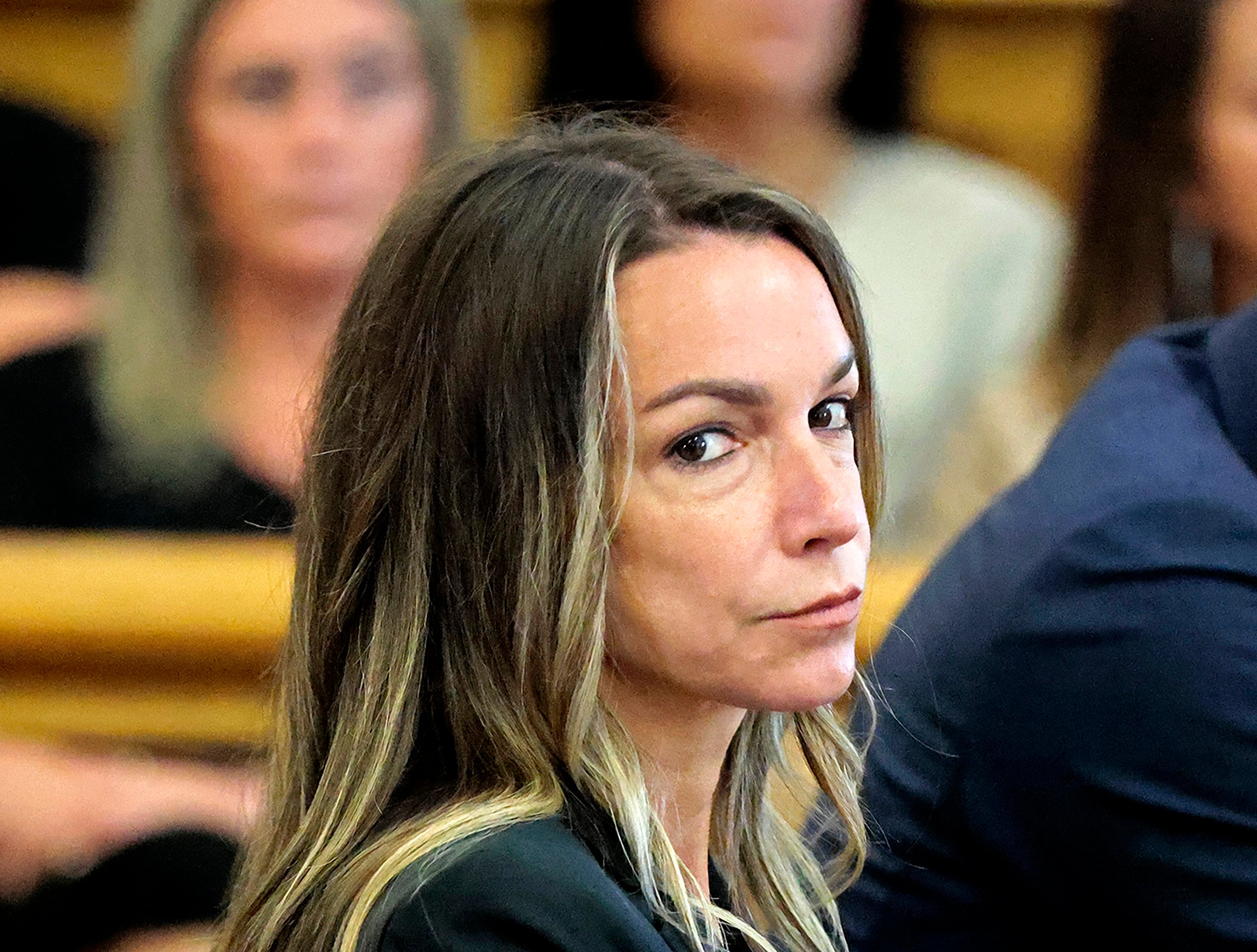Hearing in Karen Read case expected to focus on jury deliberations
Prosecutors and defense attorneys in the Karen Read case are set to return to court with the focus expected to be on jury deliberations that led to a mistrial on charges she killed her police officer boyfriend

Your support helps us to tell the story
From reproductive rights to climate change to Big Tech, The Independent is on the ground when the story is developing. Whether it's investigating the financials of Elon Musk's pro-Trump PAC or producing our latest documentary, 'The A Word', which shines a light on the American women fighting for reproductive rights, we know how important it is to parse out the facts from the messaging.
At such a critical moment in US history, we need reporters on the ground. Your donation allows us to keep sending journalists to speak to both sides of the story.
The Independent is trusted by Americans across the entire political spectrum. And unlike many other quality news outlets, we choose not to lock Americans out of our reporting and analysis with paywalls. We believe quality journalism should be available to everyone, paid for by those who can afford it.
Your support makes all the difference.Defense attorneys for Karen Read are expected to argue Friday that two charges in the death of her Boston police officer be dismissed, focusing on the jury deliberations that led to a mistrial.
Read is accused of ramming into John O’Keefe with her SUV and leaving him for dead in a snowstorm in January 2022. Her two-month trial ended when jurors declared they were hopelessly deadlocked and a judge declared a mistrial on the fifth day of deliberations.
A new trial is set to begin Jan. 27.
In several motions since the mistrial, the defense contends four jurors have said the jury unanimously reached a not guilty verdict on second-degree murder and leaving the scene of a deadly accident and were deadlocked on the remaining manslaughter charge. Trying her again on those two charges would be unconstitutional double jeopardy, they said.
They also reported that one juror told them “no one thought she hit him on purpose or even thought she hit him on purpose.”
The defense also argues Judge Beverly Cannone abruptly announced the mistrial without questioning jurors about where they stood on each of the three charges Read faced and without giving lawyers for either side a chance to comment.
Prosecutors described the defense’s request to drop charges of second-degree murder and leaving the scene of a deadly accident as an “unsubstantiated but sensational post-trial claim” based on “hearsay, conjecture and legally inappropriate reliance as to the substance of jury deliberations.”
But in another motion, prosecutors acknowledged they received a voicemail from someone who identified themselves as a juror and confirmed the jury had reached a unanimous decision on the two charges. Subsequently, they received emails from three individuals who also identified themselves as jurors and wanted to speak to them anonymously.
Prosecutors said they responded by telling the trio that they welcomed discussing the state's evidence in the case but were “ethically prohibited from inquiring as to the substance of your jury deliberations.” They also said they could not promise confidentiality.
As they push against a retrial, the defense wants the judge to hold a “post-verdict inquiry” and question all 12 jurors if necessary to establish the record they say should have been created before the mistrial was declared, showing jurors “unanimously acquitted the defendant of two of the three charges against her.”
Prosecutors argued the defense was given a chance to respond and, after one note from the jury indicating it was deadlocked, told the court there had been sufficient time and advocated for the jury to be declared deadlocked. Prosecutors wanted deliberations to continue, which they did before a mistrial was declared the following day.
“Contrary to the representation made in the defendant’s motion and supporting affidavits, the defendant advocated for and consented to a mistrial, as she had adequate opportunities to object and instead remained silent which removes any double jeopardy bar to retrial,” prosecutors wrote in their motion.
Read, a former adjunct professor at Bentley College, had been out drinking with O’Keefe, a 16-year member of the Boston police who was found outside the Canton, Massachusetts, home of another Boston police officer. An autopsy found O’Keefe died of hypothermia and blunt force trauma.
The defense contended O’Keefe was killed inside the home after Read dropped him off and that those involved chose to frame her because she was a “convenient outsider.”